The Autonomous University of Madrid is a well-known public university located in Madrid, the capital of Spain. The following is a detailed introduction to it:
Introduction and Overview
Established: 1968.
Nature of the institution: Public university.
Location: The main campus Cantoblanco is located in the northern suburbs of Madrid, and there is also a medical campus.
Number of students and faculty: There are more than 46,224 students, including 21,203 undergraduates, 6,701 postgraduates and 3,818 doctoral students. There are a large number of faculty and staff, with 2,157 teachers and 836 administrative and logistics staff.
History
The Autonomous University of Madrid was established in 1968. At its inception, it had five faculties, including the Academy of Sciences, the School of Law, the School of Literature, the School of Medicine, and the School of Political Science, Economics and Business. These faculties were scattered throughout Madrid, and then gradually integrated and developed to become one of the most famous higher education institutions in Spain.
School Strength
Teaching Quality: The quality of academic training has been recognized by the Spanish Ministry of Education, 48 All doctoral programs have won the Excellent Discipline Award, and the employment rate of graduates ranks among the top ten in Spain. Many large companies and institutions in the world work closely with it to provide students with a large number of employment opportunities.
Faculty: The faculty consists of experienced professors and young researchers. They not only have profound academic attainments, but also focus on cultivating students' critical thinking and encourage students to explore their fields in depth.
Scientific research strength: It co-organizes multiple research centers with the Spanish Higher Scientific Research Center (CSIC), and has achieved remarkable research results in the fields of nanoscience, advanced materials and life sciences. It is one of the first pan-European campuses promoted by the European Commission. Its research in the field of mathematics ranks among the top 51-75 in the world university rankings (the top 12 in Europe). =Name).
Educational philosophy
Focus on cultivating students' critical thinking and innovative ability, encourage students to learn across disciplines, closely integrate curriculum design with the dynamic needs of the professional world, and regularly update to incorporate the latest developments in various fields, so that students have the latest and most relevant knowledge and skills, and are fully prepared for their future careers.
Key laboratories and disciplines
Key laboratories: With advanced scientific research facilities such as the Scientific Computing Center, they provide a good research environment for researchers and students.
Key disciplines: In the field of natural sciences, biology, chemistry, physics and other majors enjoy a high reputation; economics, business management, law and other majors in the social sciences have a high academic level; history, philosophy, linguistics and other majors in the humanities are also one of the best in Spain, and medicine is also one of the top majors in Spain.
Faculty settings
The school has a total of 7 colleges, as follows:
Science College: Undergraduate majors include environmental science, biology, food science and technology, physics, mathematics, chemical engineering, nutrition and other majors; Master's majors include university biomolecular and cell dynamics, biotechnology, biosystem physics and other majors.
School of Economics and Business: Undergraduate programs include business administration, data analysis, finance, and economics; master programs include quantitative economic analysis.
School of Law: Undergraduate programs include law, law and business administration, and public administration; master programs include law, democracy and governance.
School of Philosophy and Literature: Undergraduate programs include philosophy, history, music, and art; master programs include East Asian cultural studies, British literature, and English linguistics.
School of Education: Undergraduate programs include early childhood education, elementary education, and physical education; master programs include early childhood education and elementary education.
School of Medicine: Undergraduate programs include medicine and nursing; master programs include molecular biomedicine, pharmacy, and biocomputing.
School of Higher Technology: Undergraduate programs include computer engineering, data science and engineering, mathematics, and biomedicine; master programs include computer engineering and artificial intelligence.
Ranking
QS World University Rankings 2025 198th.
QS World University Rankings 2024 199th.
QS World University Rankings 2023 215th.
THE World University Rankings 2024 351-400th.
THE World University Rankings 2023 301-350th.
THE World University Rankings 2022 301-350th.
USNEWS World University Rankings 2022 208th.
Expenses
Tuition fees: Undergraduate and Master's tuition fees are about 1,200 euros per year.
Living expenses: about 500-800 euros per month, a total of about 80,000-120,000 yuan per year.
Campus environment
Area and layout: Main campus Canto Blanco campus total area 2252000 square meters, including residential areas, green parks, etc., built beside the mountains, with beautiful environment and complete infrastructure.
Transportation: convenient transportation, with direct access by train, bus.
Facilities: The campus has various facilities such as library, stadium, laboratory, dormitory, restaurant, as well as service buildings such as music and language learning center, providing students with a good learning and living environment.
Green campus: ranked 33rd in the 2014 greenmetric world green campus rankings.
-
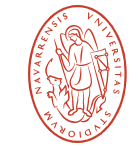
University of Navarra
-
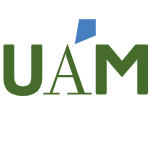
Autonomous University of Madrid
-

Polytechnic University of Catalonia
-

CEU University of San Pablo
-
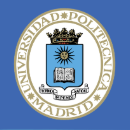
Technical University of Madrid
-

University of Lleida
-
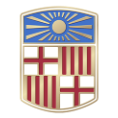
University of Barcelona
-
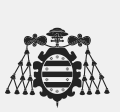
University of Oviedo
-
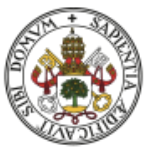
University of Valladolid
-
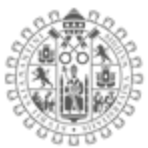
University of Salamanca
-

Mesoamerican University
-

Istmo University
-

Mariano Galvez University of Guatemala
-

Regional University of Guatemala
-

Galileo University
-

Francisco Marroquín University
-

Rafael Landívar University
-

University of the Valley of Guatemala
-

University of San Carlos of Guatemala
-

Technological Institute of Tlaxcala Plateau
-

Golfo University
-

Technological University of South Sonora
-

Technological University of Huejotzingo
-

Tizimín Institute of Technology
-

Chilpancingo Institute of Technology
